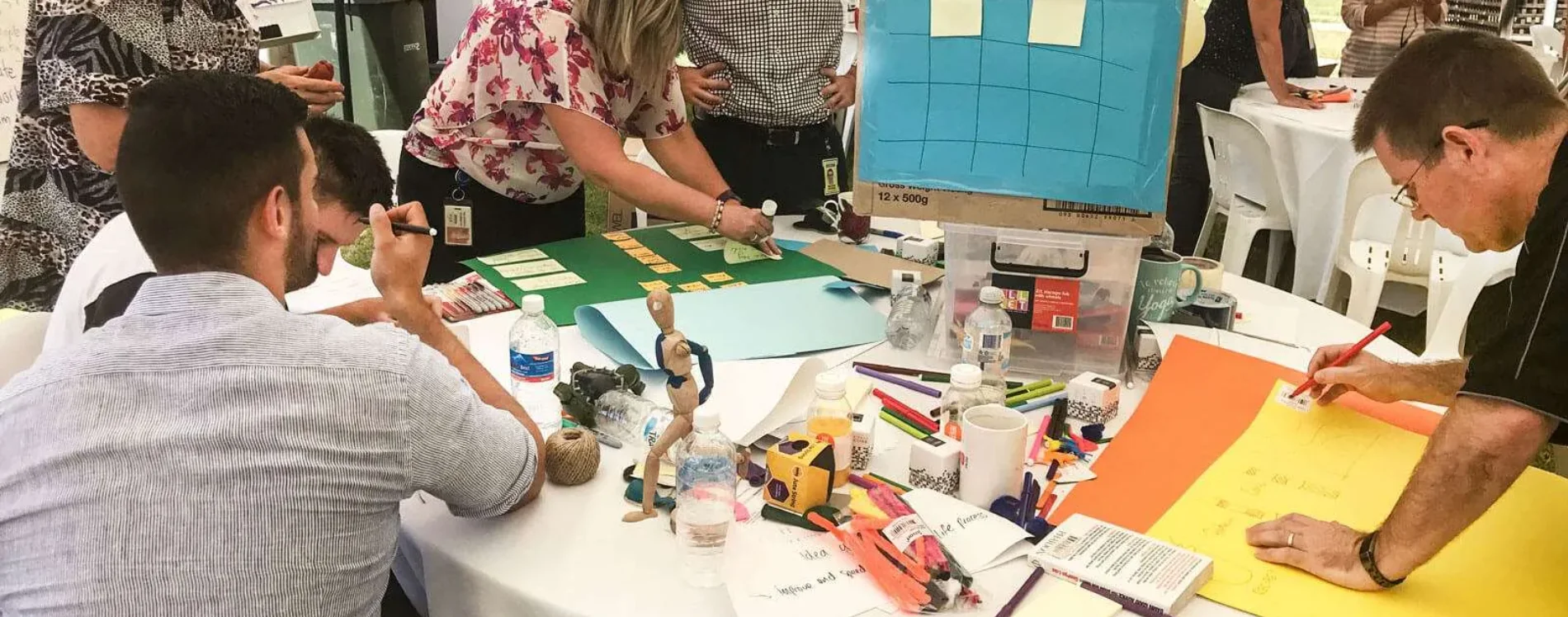In today’s competitive world, organisations can’t rely on old methods to solve new problems. A design thinking facilitator helps teams approach challenges differently, using creativity, empathy, and practical action to deliver innovative outcomes.
Why a Facilitator Matters
Design thinking is a proven, human-centred process that blends problem-solving with imagination. While the method itself is powerful, having a facilitator ensures participants stay engaged, focused, and supported. A facilitator guides teams through structured activities that encourage fresh thinking, build collaboration, and turn ideas into action.
The Core Stages of Design Thinking
Workshops are usually built around five key stages that make up the design thinking framework:
-
Empathise – Discover the needs, feelings, and motivations of the people you’re designing for.
-
Define – Narrow down the challenge and frame the problem clearly.
-
Ideate – Explore a wide range of creative ideas without judgment.
-
Prototype – Transform ideas into simple models or drafts that can be tested.
-
Test – Share prototypes with users, collect feedback, and improve them further.
These steps are flexible, allowing teams to revisit earlier stages whenever new insights appear.
What Makes Great Workshops Different
Successful design thinking workshops don’t just follow a formula. Skilled facilitators bring in elements that make the experience more impactful:
-
Breaking creative barriers – Encouraging people to move past self-doubt and embrace their creativity.
-
Using positive language – Building ideas with “yes, and” instead of shutting them down.
-
Promoting iteration – Reinforcing that innovation is ongoing and solutions improve through practice.
These techniques turn a workshop into an energetic, collaborative space where creativity feels natural.
Benefits for Australian Organisations
Across Australia, design thinking workshops are helping businesses, educators, and community organisations rethink how they solve problems. Some of the main benefits include:
-
Building stronger teamwork and communication.
-
Developing empathy-driven solutions that connect with real needs.
-
Inspiring confidence to test and experiment without fear of failure.
-
Embedding a culture of innovation that continues long after the workshop.
Whether delivered online or in person, these sessions provide practical skills that participants can apply immediately.
Who Can Take Part?
Design thinking workshops are suitable for diverse groups—from corporate teams and government organisations to entrepreneurs and educators. Anyone who wants to think differently and create user-focused solutions can benefit from this approach.
Conclusion
A design thinking facilitator empowers people to move beyond traditional problem-solving and embrace creativity with purpose. By combining empathy, experimentation, and collaboration, these workshops help teams unlock fresh ideas and transform challenges into opportunities.






